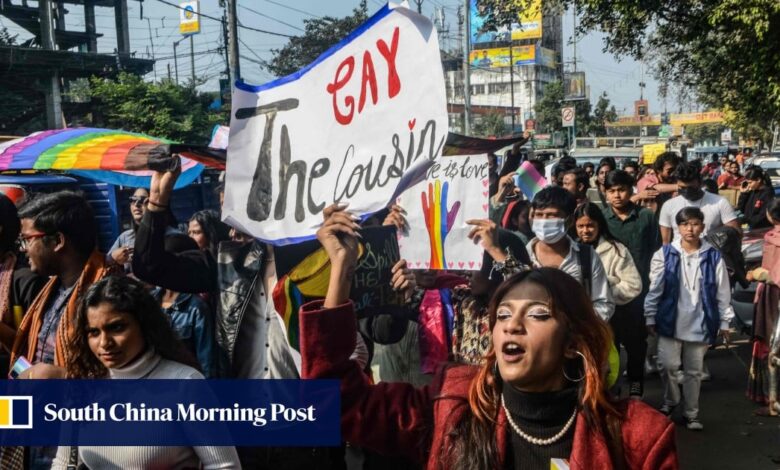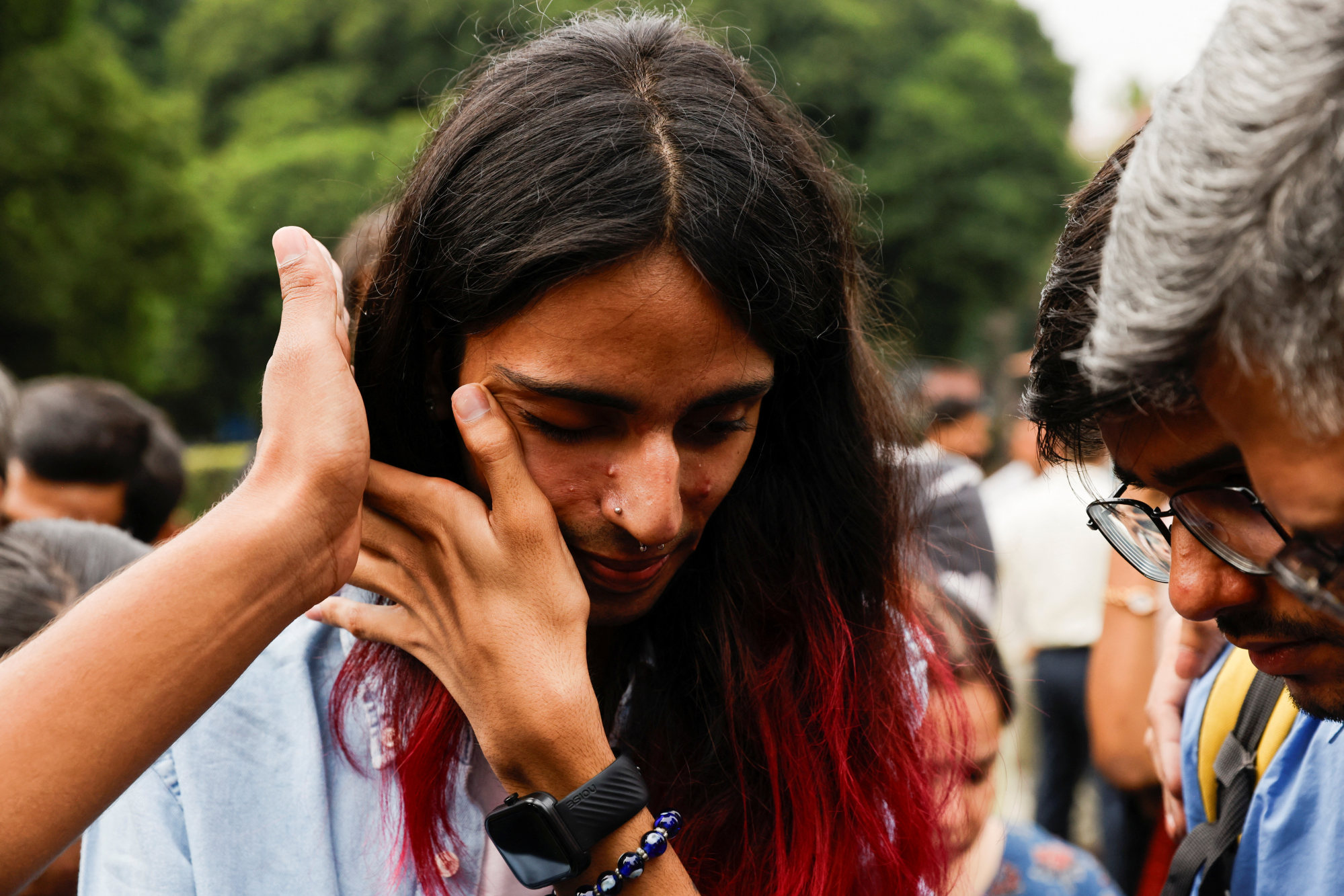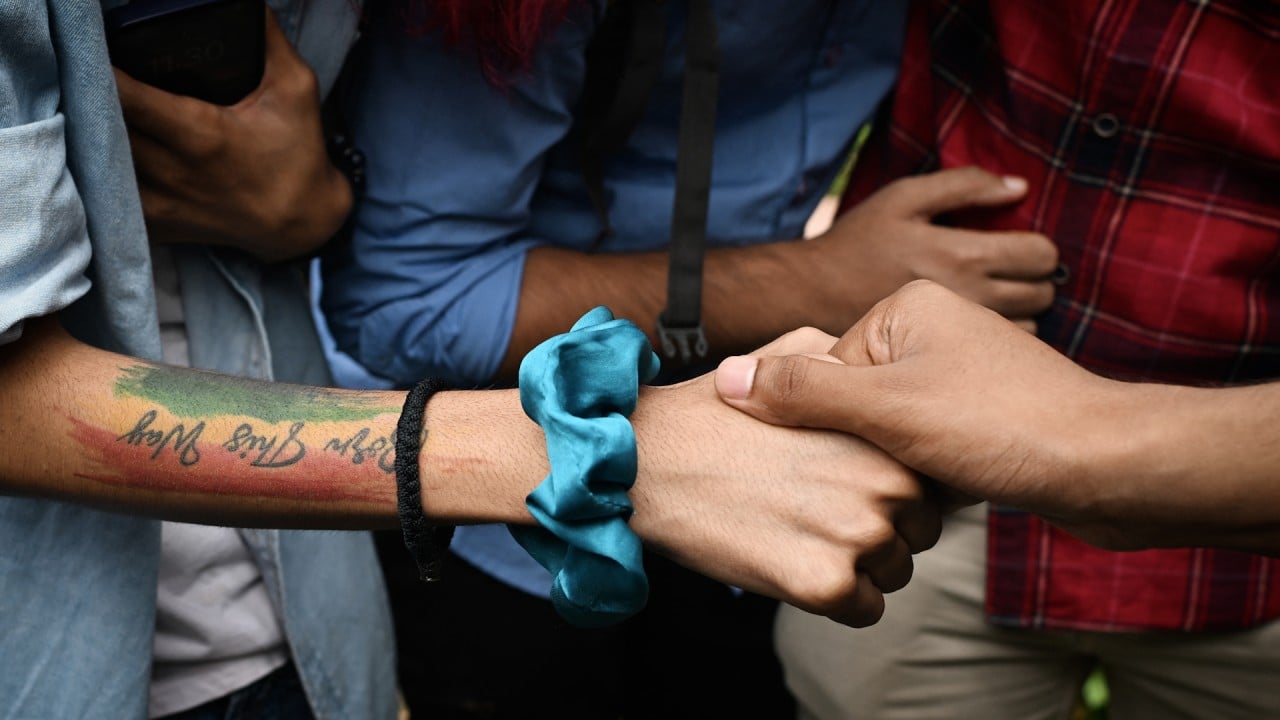India’s gay marriage ruling ‘a smack in the face’, but LGBTQ folk vow to continue equality fight

“The first response was one of disappointment, despondency and shock,” said Anand.
But when the dust settled, he said the realisation set in that there was always going to be a larger battle for the couple to get their legal rights.
“One realises that the harder fight, and perhaps the more important one, was always going to be the fight in the court of public opinion and in the messy realm of democracy,” he said.
More than a dozen petitioners – comprising a diverse group of same-sex couples – had argued that India’s constitution guaranteed equality for all its constituents during hearings in April and May.
‘Strangers in eyes of law’: same-sex marriage fight goes to Supreme Court
‘Strangers in eyes of law’: same-sex marriage fight goes to Supreme Court
They used the country’s Special Marriage Act, a secular law that has been used to legalise inter-caste and inter-religious marriages, to urge the Supreme Court to recognise same-sex unions.
Activists say they were hopeful because the court had been receptive to the stories and arguments made by the campaigners.
Gawande said what he found most worrying was that it is not “completely outside the court’s purview” to grant or recognise civil unions.
“Indian courts have over the past two decades made interpretive advances that are far more significant than the ones they claim they couldn’t make yesterday,” he said.
Jayna Kothari, a gender law expert who served as special counsel for the petitioners in the case, said the ruling was a “shock”.
“We have a lot of Supreme Court decisions that have upheld that there is a fundamental right to marry a person of one’s choice,” she said, but she was dismayed that the court declined to extend this right to persons “irrespective of sexual orientation or gender”.
Currently, same-sex couples in India are barred from accessing legal benefits and rights including those linked to adoption, insurance, and medical consent.
“The judges agreed and affirmed that the legal framework as it stands today is discriminatory,” said petitioner Uday Raj Anand. “They all recognised that a class of persons were being arbitrarily denied the capacity to live full lives as citizens.”
“And after recognising all of that, they said, sorry, we can’t help you. Which then felt it like a smack in the face,” he said.
Silver linings
While the court fell short of granting queer couples the legal right to marriage, it said India had the duty to acknowledge same-sex relationships and protect LGBTQ people from discrimination – something many petitioners were relieved to hear.
“Our ability to feel love and affection for one another makes us feel human,” Chief Justice Chandrachud said, adding that queerness was a “natural phenomenon”.
As such, the Supreme Court called on the government to set up a committee to look into the rights and entitlements of LGBTQ people, including assessing rules around medical, financial and inheritance benefits.
‘Both mum and dad’: pregnant Indian excited to become a father
‘Both mum and dad’: pregnant Indian excited to become a father
“This ruling has accelerated the need for queer communities to engage more directly and sustainably with the political class in this country,” Gawande said, adding that elected representatives can now be held accountable in providing protections to LGBTQ persons.
Public opinion and discourse surrounding queer rights has already been shifting in the country, activists said, but there remains a lot of work to be done.
“The movement has to work quite hard to push these issues forward,” legal advocate Kothari said. “Now that the court has recognised the obstacles and the needs of the community, it gives us a great basis to push the government to pursue this.”

Campaigners and activists are hoping this ruling is not discouraging, especially for LGBTQ people who may be facing marginalisation and discrimination from their families or wider communities.
“With the Supreme Court hearing being live-streamed across the country, I think now this is a genie that can no longer go back into the bottle,” said Aditi Anand, who along with her partner Susan Dias, was also a petitioner on the case.
“The only way from here, I believe, is forward,” she added. “Although we were hoping that it would be the law that would pull society, now I hope that now it will be social cues that will help bring changes to the law.”






